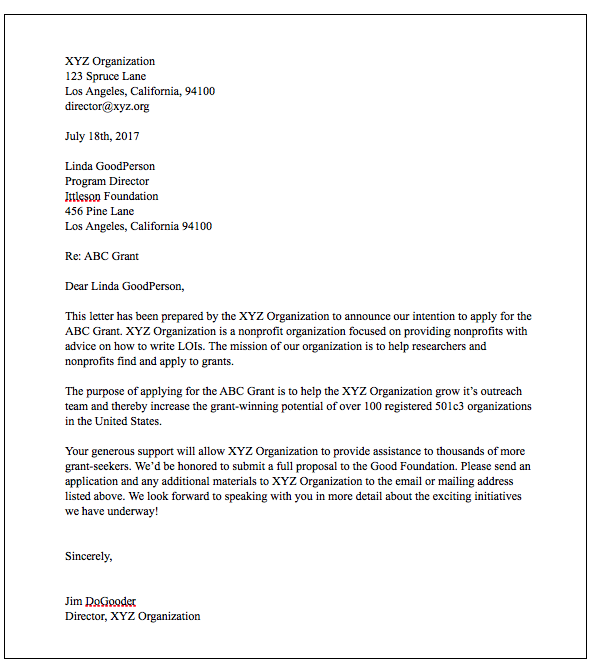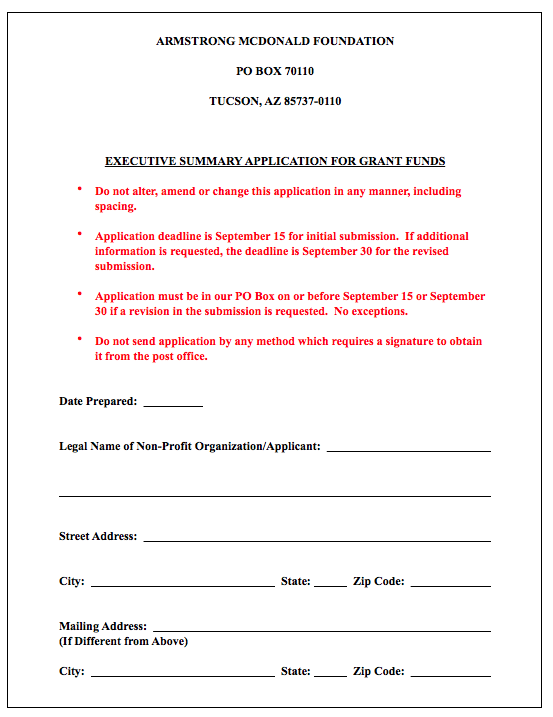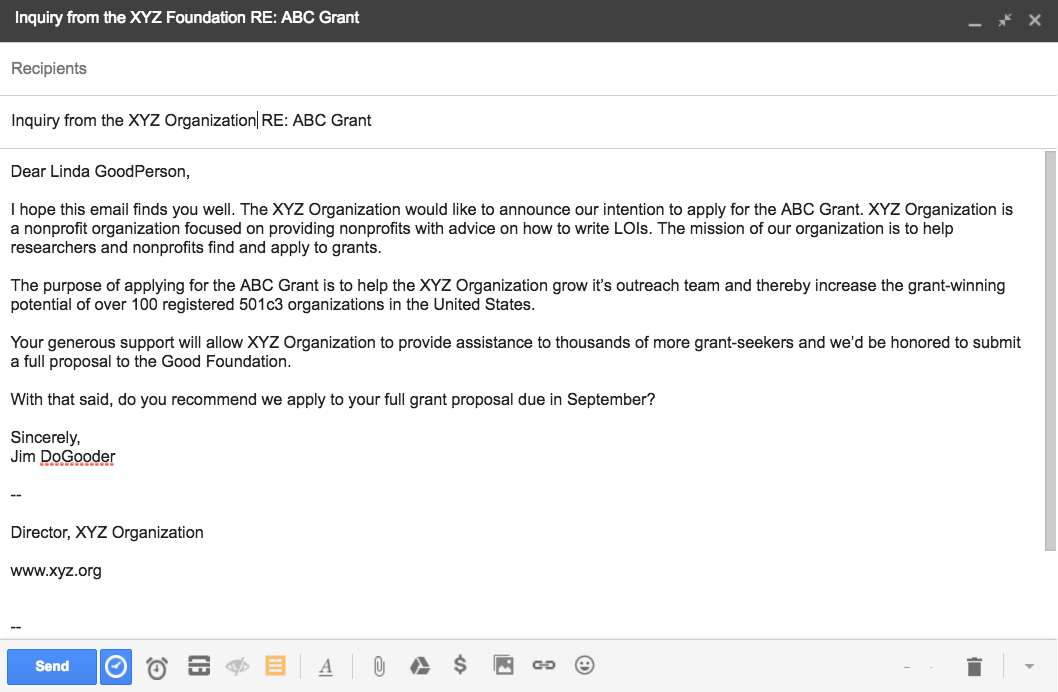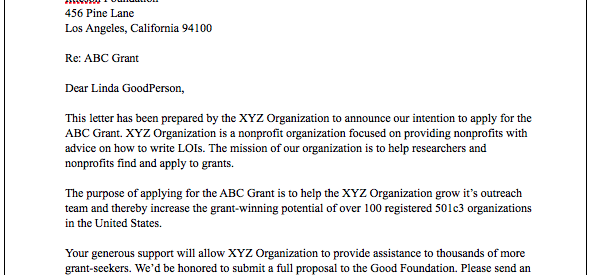Decrease your workload and increase your chance of success with smart & well-written Letters of Intent (LOI).

An LOI is your formal, first request for information from a grant-maker. Many foundations require you submit a Letter of Inquiry (LOI) before applying with a formal, full-length grant proposal.
Submitting LOIs can save you a lot time. LOIs are short, 1?3 page letters that allow you to communicate your core ideas to a foundation without spending the dozens of hours on a full-length proposal before you know that you?re a good fit. If the grant-maker likes your ideas, they?ll invite you to apply through their full proposal process.
In this post you?ll learn how to write different types of LOIs to best meet your prospective foundation?s needs.
LOIs come in many shapes and sizes. Some foundations require them, while others don?t even mention them. But did you know that you can always submit a short LOI before applying to any organization? It?ll help you determine if you?re a good fit upfront.
If you?re reaching out cold to a foundation without an established relationship, LOIs can be a great way to introduce yourself. Just make sure you do it in a clear, concise and captivating way and never forget your goal.
The goal of an LOI is to get invited to submit a full grant proposal.
Foundations, like the Ittleson Foundation, ask for ?a brief letter to the Executive Director describing the organization and the work for which funds are being sought, along with a budget and evidence of tax-exempt status.?
In this case, you?ll need to draft your own letter from scratch. Not to fear ? I?ve included an example letter of intent below. Use it and tweak it for your organization or project.
Example 1 page LOI to the Ittleson Foundation:

*Make sure you don?t forget to include the attachments that the Ittleson Foundation also requested or you might be immediately disqualified.
Other foundations provide specific guidelines about what must be included in their LOI along with a deadline for submission. Take the Armstrong McDonald Foundation for example.
The Armstrong McDonald Foundation calls their LOI a ?Pre-proposal,? but it?s the same thing as an LOI. I downloaded a 5-page template of their pre-proposal from their website.
Example pdf dowloaded from the Armstrong McDonald website:

This LOI has a hard deadline of September 1st and in addition to organization name and address, the Armstrong McDonald Foundation also asks for:
- the charitable purpose of your organization (aka mission)
- amount of funding requested
- time period for which funds are requested
- a description of the project for which grant funds are requested
- a copy of IRS Determination Letter
- a line item project budget for the dollar amount requested
- a copy of your most recent balance sheet (aka your Statement of Financial Position) and Income Statement
Even if a foundation doesn?t require submitting an LOI, it can be a great way to quickly introduce yourself and determine if you should invest the hours on completing a full proposal.
The Dominion Foundation doesn?t ask for an LOI, so here?s an email I drafted introducing my organization.
Example email written for the Dominion Foundation:

As you start to develop your LOI, wether it?s an email, a 1-pager letter or in an application you downloaded from the foundation?s website, keep these 3 last tips in mind:
- Follow directions EXACTLY. Every foundation has their own way of handling LOIs so make sure you understand what is expected of you before you submit. Only include attachments if asked for them. A failure to follow directions can mean immediate disqualification.
- Budgets & other attachments may be required with your LOI.When putting together your budget, determine how much you should ask for from the foundation?s past 990 forms. The 990 form can help you identify past awarded organizations, organizations similar to yours, and the average amount previously granted. Use this data as a starting point and adjust your budget accordingly.
- ProofreadCheck your grammar and spelling. Don?t come off as unprofessional with grammatical and/or spelling errors.
Like what you read? Sign up for the Instrumentl newsletter to stay on top of new grant announcements and tips (like the ones here) that?ll have you winning more grants!


